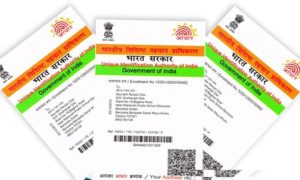Many individuals nowadays often get messages from numerous employers offering employment opportunities. You should exercise caution if you, too, are receiving similar SMS messages. The cost of accessing the message’s URL or phone number might be high. In light of this, the National Informatics Center (NIC) has issued a public alert concerning the prevalence of fraudulent SMS. An offer of employment is made in your name in these messages.
In the name of NIC, fake messages are being sent
Read More: How to lock biometric information on your Aadhaar Card in simple steps
Warning issued following allegation of fraudulent SMS with purported job offer. Nic’s name was being slandered in these mass-distributed SMS. The Communications Ministry issued a statement on Friday saying that an internal investigation was done after learning of the bogus SMS and the results showed that the false SMS was not sent by NIC.
False SMS campaigns masquerading as anti-fraud initiatives are posing as National Infrastructure Commission (NIC) alerts. According to NIC, fictitious short message service (SMS) texts are being investigated as a possible form of money fraud. When NIC learned of these SMSs, it promptly notified CERT-In and filed a complaint with law enforcement to help track down and bring to justice the perpetrators.
Read More: How to recharge FASTag via SBI YONO app
To further reduce the prevalence of scam SMSs and online fraud, NIC coordinated the removal of malicious URLs from CERT-In. When it comes to cyber security, CERT-In serves as the nation’s central response team.
How to stay safe fake messages
The Union Home Ministry has issued a warning to young people on how to spot online employment scams and stay safe. Unprofessional email communication and the rapid distribution of appointment letters are examples of this. The government has instructed individuals to contact the cyber crime division if they accidentally receive an inappropriate email. In this case, it’s best to file a complaint on India’s central database for reporting cybercrime, found at cybercrime.gov.in.





































